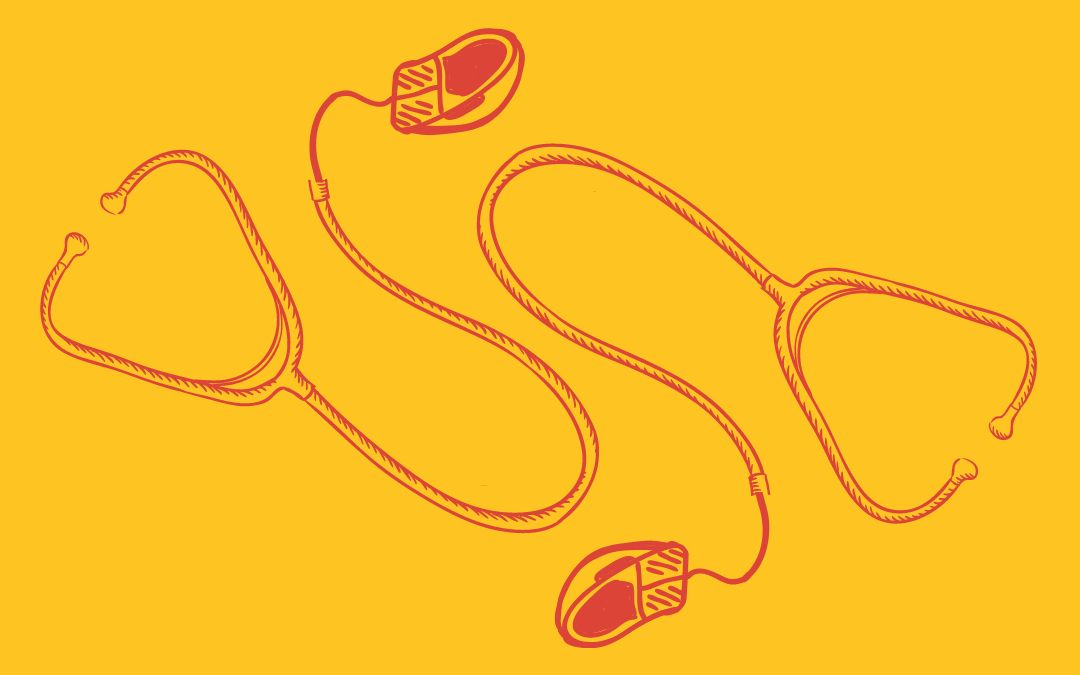I am a medical student at Fred Med and this is why your doctor makes fun of you when you say you Googled your illness
It is a common occurrence in medical school for our older professors to belittle patients who consult Dr. Google. As medical students, we learn we are supposed to laugh along when the attending demeans the sick people who are in our care who attempt to educate themselves.
The meaning of this ritual humiliation of patients is to teach young medical students that we are entering a fellowship of superior and secret knowledge which places us above patients. To prove ourselves, we must show we can be cruel too.
When speaking directly to patients, doctors often cite a scaremongering fear that patients will be exposed to “misinformation” on the internet.
But the doctor who rolls their eyes when you mention what you learned from Dr. Google is not afraid of misinformation. Your doctor is afraid of losing power over you.
The knowledge the doctor has represents power. And that power equals money.
From your doctor’s point of view, they have spent an enormous amount of money to acquire their knowledge and the power that goes with it, and your Google search cheapens them. Although I understand that better now that I have shouldered crippling debt for my education, my debt doesn’t make me superior to my future patients.
If it were really true that doctors wanted to keep you off the internet to avoid misinformation, they could very easily direct you to reputable sites like:
The National Institute of Health: MedlinePlus.gov
FamilyDoctor.org
Your doctor could give you reliable links and trusted online sources to explain your options. It should be standard medical practice! But only the best doctors take that trouble. Doctors would prefer you to be ignorant because the lack of knowledge that makes you weak makes them strong and rich.
Here are some things your doctor doesn’t want you to Google:
Unnecessary back surgery
Unnecessary hysterectomy for benign disease
Unnecessary cardiac stent
Dangerous breast implants
Unnecessary spine surgery
Cost comparison of unnecessary knee surgery in different cities
Racial disparities in outcomes for your illness
Gender disparities in the treatment of your illness
Discredited treatments for your illness
Black maternal death rate
Profitability of your treatment
The medical error rate in your hospital
Why doctors choose palliative care for themselves but suggest heroic measures for their terminal patients
Kickbacks offered to doctors and hospitals for your prescription
Drunken pictures of Dr. X at a Pharma conference last month
What Your Doctor Will Google
You can bet if your doctor is diagnosed with a rare disease, they will Google the hell out of it. Your doctor also has access to professional resources like PubMed and UpToDate, but your doctor will follow links to miracle cures for their incurable disease just like you. And yes, your doctor will click on links to diet and lifestyle change alternatives to toxic treatments. And yes, your doctor will Google famous people who died of Eyelash Cancer just like you. And yes, your doctor will be clickbaited into buying a heated silk eye pillow and feel quite a bit better as a result.
Further Irony
While your doctor thinks you are too stupid for WebMD, when they give you their diagnosis, they use technical terms and jargon you have never heard before and expect you to understand their technical language without looking it up.
Your doctor is well aware that people freeze up in the face of bad news and knows you will be too scared and scattered to ask the questions you need to understand your condition and your options. All for the best, as that makes it possible for the doctor to keep total control of your treatment and your body.
You give your body to doctors and they profit from it
There is a direct link between our medical culture and slavery, where individuals have no control over their bodies. Censorship is part of slavery, and enslaved people are always denied access to knowledge.
For women, ignorance of their own bodies has always been a tool of patriarchal control. The lower women’s status is in relation to men, the more likely they are deprived of basic information about reproduction and sexuality. When women are the property of men, they are not allowed to know about their bodies.
Part of your unpaid labor as a patient is fueling the cultural privilege of physicians. You must feed their ego with your ignorance. While you receive the vast majority of your care from underpaid and under-respected medical helpers, you are expected to play into the worship of the doctor you may see for only a few minutes.
It is your job as the patient to defer to your doctor, to stuff your feelings around your doctor, to accept their errors without comment, and to thank them profusely for the service you are paying for.
And yes, you are graded on your performance of submission. Right there in the visit notes, your physician marks you as “pleasant” or “agreeable” if you are submissive to their will. The demand for compliance is also fraught with bias: know that physicians use more negative descriptions in black patient health records and are more likely to use patronizing descriptions like “lovely” on women.
Beneficence
Sometimes doctors clothe their censorship of medical knowledge as beneficence, their obligation to protect you. They cast themselves as your guardian against the worrying world of information.
It is so easy for a doctor to blame patient anxiety on WebMD.com. And even easier for healthcare professionals to denigrate the worrier. As a medical student, I hear my professors making fun of hypochondriacs all the time, even as we profit from them.
But doctors should know better. Information is not one of the underlying causes of anxiety.
If your doctor would just bother to Google it, they would find that the leading causes of anxiety are trauma, childhood adversity, sexual abuse, poverty, war, addiction, illness and even pollution.
I hope there is a generational change at hand where younger doctors like me will be more likely to see anxiety for what it is: a serious condition with deep roots. For now, what I see is that older doctors are anxious about anxiety because acknowledging it would mean treating their patients like human beings.
The CDC website is not a meaningful source of mental illness, but being treated with condescension and scorn by your doctor can be a source of anxiety. And anxiety often keeps people from visiting the doctor.
So, doc, if you want to build a good fanbase for your own Youtube Channel/Medical best-seller, stop putting people down for seeking knowledge.
This is satire, but the problem is real.
If you care about accountability in medicine you might also want to read: Money for Pharma in the Harm Reduction Model

